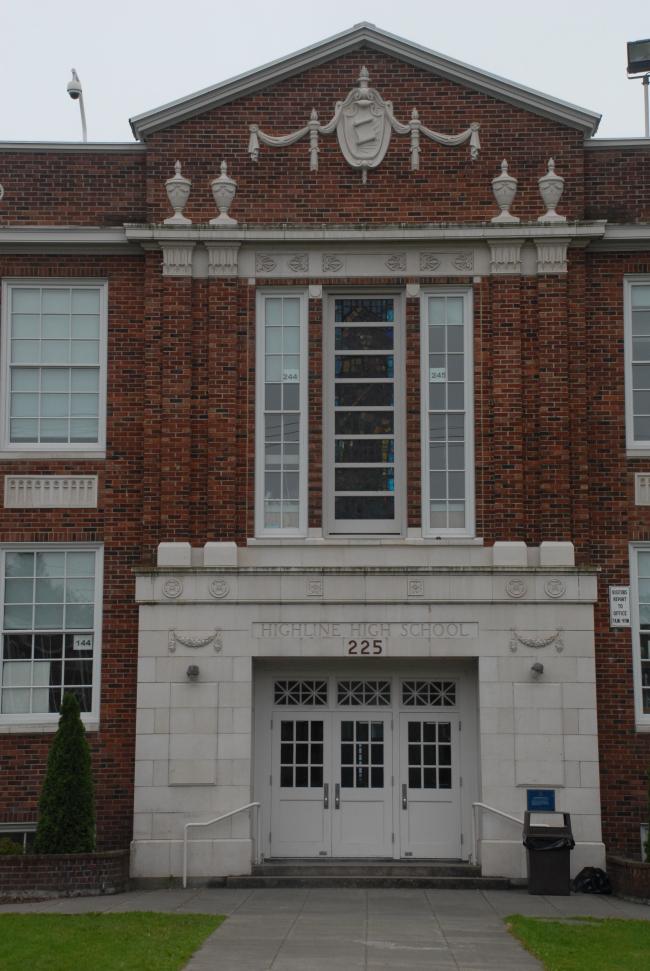Highline school levy on February ballot
Historic Highline High in Burien will remain as is, for now.
Tue, 10/19/2010
Highline High and Des Moines Elementary, two of Highline's oldest schools, will not be rebuilt-at least for now.
Highline School Board members decided Oct. 13 not to place on the February ballot a $200 million bond measure that would have funded replacement of the two schools, technology improvements and building repairs.
However, voters will decide in February on a four-year educational programs and operations levy. The current levy expires in 2011.
The replacement levy would be $46 million for the first two years, $47 million for the third year and $49 million for the final year.
District staffers estimate the tax rate for the first three years would be $3.44 per $1,000 of assessed home value. In the fourth year, the rate would go to $3.52.
A levy needs a simple majority of yes votes to pass while a bond needs a 60 percent favorable vote. The levy would fund teachers' salaries and benefits, educational needs such as textbooks and operational costs such as utilities not covered by state funding or other revenue sources.
Superintendent John Welch told board members that with projected budget shortfalls from the state and the continuing weak economy, a replacement levy is necessary to continue funding the district's programs.
"While I'm sensitive to tax rates, we need the resources to move forward," Welch said.
However, the economic downturn did play into Welch's recommendation that board members not add a bond measure to the Feb. 8, 2011 ballot.
Board members heard a report Oct. 11 from Denny Eliason of Highline Citizens for Schools on polling results his organization had done.
He said by a supermajority, district voters polled hold the district in high regard and believe district adminsitrators and teachers are doing a good job. He noted there would be very good support for a replacement levy.
But to pass a bond by a 60 percent majority "in this economy would be a significant challenge," Eliason noted.
"The community has demonstrated, in good times, it is willing to support a bond," he added. "My sense is that as the economy improves, we would be in that situation again."
In his recommendation to the board, Welch agreed with Eliason.
"I do think, based on information shared with us, that passing a bond would be very difficult," Welch said.
The proposed bond would have financed the replacement of Highline High, built in 1924, and Des Moines Elementary, built in 1925. The new Des Moines Elementary would have been built on the old Zenith site at South 240th Street and 16th Place South. District planners said the current site near downtown Des Moines is too small for the 600-student campuses that the district has been constructing for elementaries.
The bond would have also funded $9 million in technology improvements, $20 million in repairs and $13 million to fix up the Olympic site as a temporary school foe Highline High students.
Welch did indicate he would give the board another recommendation before the 2010-2011 school year ends on placing a construction bond or capital levy on the Spring 2012 ballot.
In place of a bond, district officials considered placing on the February ballot a $20 million capital levy that would have funded technology programs and repairs. That plan was rejected.
Welch estimated the district has about $100 million in "critical needs," such as repairs for roofs and heating and air conditioning systems.
The delay in placing the bond measure on the ballot pushes back future plans to replace the Evergreen and Tyee High buildings followed by the district's four middle schools.


